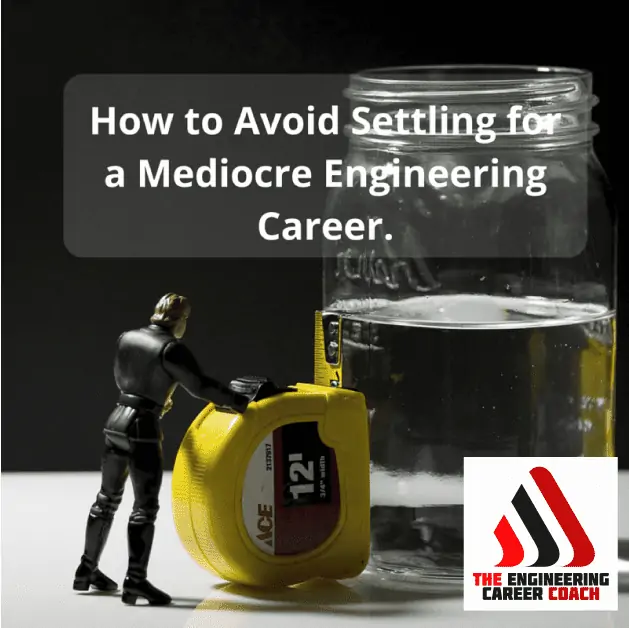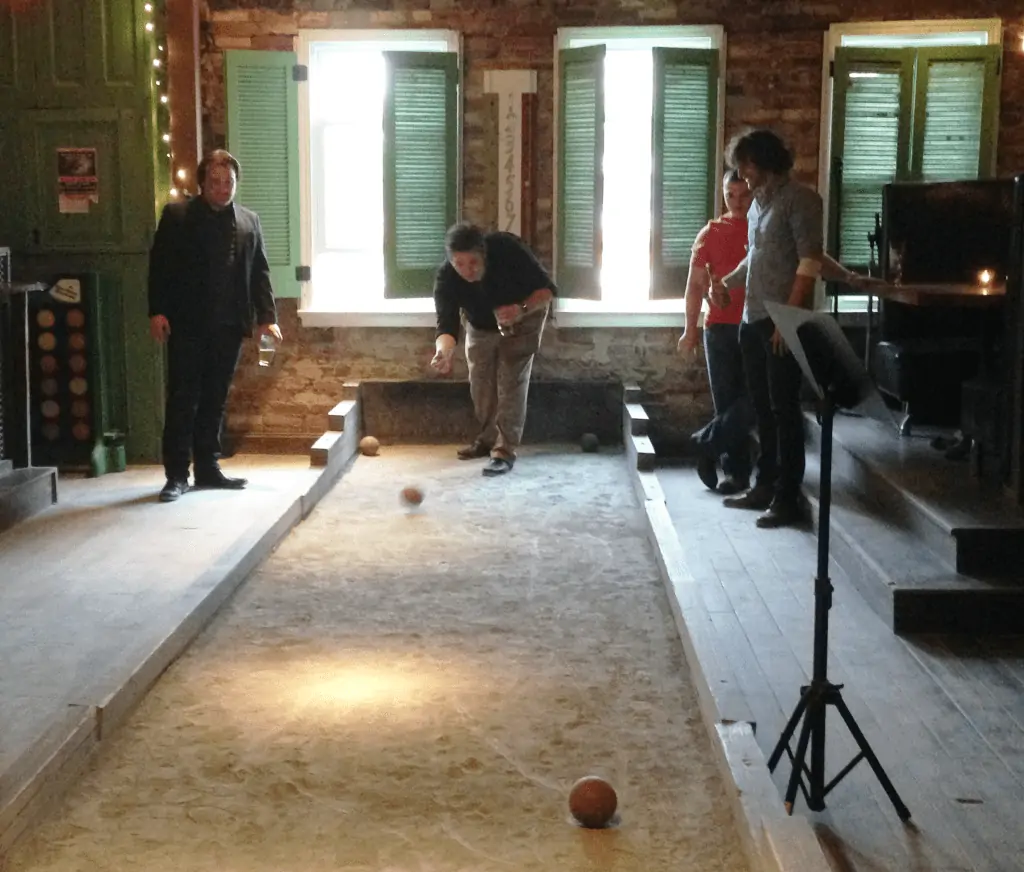This is a guest blog post by Skye Coleman, PE
In our society it’s not hard to level out. But, many professional engineers get stuck and cannot avoid a mediocre engineering career. We tell you how to get out of it
Everyone judges themselves by the examples of people that they’ve seen come before them. If you’ve maintained most of the same friends since high school and they didn’t follow you into a technical career, chances are you’re the most successful person out of all your peers. Maybe you were the first person in your family to go to college, every dream your parents had for you accomplishing more than them has already been realized.
Few people really challenge themselves anymore. And this goes doubly-so for engineers.
We’ve become so accustomed to being the smartest people in the room that we hardly push ourselves anymore. Instead of trying for a job that’s 2-3 steps above our current job we tend to stay with companies long past when we should because it’s comfortable.
Too often I see my peers making the mistake of complacency and taking the easy way out. Have I done it before, of course. It’s a daily struggle, but more often than not, I’m winning the battle rather than losing it.
It’s sad that the glimmer I see in new engineering graduates eyes only lasts a few short years before it quickly fades into the abyss of routine and habit.
Instead of trying to better oneself, many engineers I know settle for mediocrity. Learning new things is replaced with distractions and busy work. Seldom do these engineers even entertain the notion of a new product or way of doing something because “that’s just the way we’ve always done it.”
This is never more true then when it comes time for a young professional engineer to log the hours necessary to renew their professional engineering license. Many of my peers view such requirements as burdensome and a waste of time.
Instead of finding a topic they’re interested in, many resort to going to the same presentation presented by 30 different vendors (I mean seriously, I know the margins are high but does everyone who makes an LED light need to present on it?) in order to meet the minimum requirements.
37 Pieces of Flair from Lloyd Wilson on Vimeo.
This isn’t meant to be an attempt to discredit engineers who do the minimum, because I understand… we’re all busy.
Unfortunately in an industry constantly worried about project deadlines, staying billable, and increasing productivity, it’s hard to find space to focus on the learning we all need to do. It’s so bad that many engineers I work with don’t even like the idea of taking a lunch at all.

Image credit: Forbes.com
On the rare occasions that these engineers can be lured away from their cubicle for lunch, it’s likely due to one of the aforementioned vendor presentations that always come with a “free” lunch.
I however, rarely partake in these sessions.
Sure, I like free food… but only if the discussion is good and I think I’ll get something beneficial out of it.
Instead, I focus on other areas to achieve my educational credits, and I think you should too.
So where should you get your PDHs?
There’s no perfect answer, and as long as you’re learning something then you’re a step ahead of most engineers I know. I’ve only been a PE for a few short years now, but I’ve already used several means to accomplish all of the educational credits I’ll need to re-up my license.
Here’s a few of my favorites:
1. Take a course and get a certification, and get your engineering firm to pay for it.
In my career, I’ve already attained 4 different certifications. Each of these came with at least a week worth of training, complete with a shiny new certificate at the end.
All but one of these came paid for by the company I was working for at the time. The trick to getting your company to agree to pay for you to go to Vegas to take a class has everything to do with selection.
Know your worth, and what certifications would benefit your firm.
If you are working in a firm that specializes in engineering at industrial plants then asking to get your LEED AP certification won’t make a lot of sense. Instead, focusing on an API tank or piping certification might be a better fit.
You’ll then need to express how this will help the company.
Did you all recently lose a big contract where this certification might have come into play? Do some of the clients you work with have these certifications themselves? Would you learn a new skill that could then be marketed or added on to existing clientele?
If that’s not enough, you might have to sacrifice something.
Working at a large firm, billability rules the day. In order to get my last certification I had to sacrifice a day of my free-time to take the class for the certification. Other’s I know have volunteered to stay with family in the area of the test, or waited until the test is closer to home so they could drive there.
Being judicial about what you’re asking for should allow you to find a course at a location and time that your company would be happy to pay for.
2. Join a professional organization with a local chapter that hosts events.
I’ve never been turned down by my bosses for any organization that I ever wanted to join. They’re always more than happy to foot the bill, as long as I’m bettering myself.
Though I hate to admit, I don’t show up to the meetings nearly as often as I should.
I pick and choose the meetings of the several local groups that I belong to and normally make it to at least one meeting every 2 months. I meet a lot of great engineers at other companies, who I regularly talk with.
As an added bonus, should I ever find myself without a job, I could pick up the phone and call any one of them and be well on my way to a new offer.
3. Join me for a little vacation in New Orleans this May.
So this might not be your traditional vacation, but I’m psyched for it.
Anthony and Chris, the co-creators of this blog are putting on a conference on engineering development. Right now the preliminary schedule is stacked, and I can’t wait to see who else they get commitments from.
This isn’t the first time I’ve attended an event they’ve put on, and it’s always amazing.
If you want to hear me rant and rave a bit about last year’s event in DC then you should check out this podcast episode.
TECC 60: Engineering Career Success Summit 2015 Breakdown of Lessons Learned
Even just listening to that you should have gotten enough take-aways to 5x your current engineering career development. This year has been amazing for me, and I attest a lot of that to different things I’ve implemented that I heard at last years event.
This isn’t meant to be a hard sell, and Anthony and Chris didn’t ask me to tell you any of this. I know how much they put into it, and with what I have gotten out of it, I think more engineers should go.
Honestly, last year they didn’t even offer PDHs for the class. I still went.
I am taking PTO and paying for the hotel, flight, and conference ticket all by myself. Could you get your company to pay for it? Sure. Others have.
I’ve got my company paying for some other conferences for me, so this one became a bit of a vacation. The girlfriend might tag-along and we’ll take a few extra days there to enjoy an amazing city.
If the timing doesn’t work (or you’re crazy and don’t think you could get any benefit out of this) then the premise still stands. Find a conference that does work for you, and ask your boss about it.
Show them the number of other companies who will be there, mention that your clients are frequently in attendance, and that there’s a specific session you really want to see.
The real point to all of these tips is to get you to not blindly follow the other sheep into the next “free” lunch presentation. Instead analyze what you really want from your career.
Focus on your goals and interests, and allow them to lead you into an amazing engineering career.
 About the writer, Skye J. Coleman, PE
About the writer, Skye J. Coleman, PE
Skye helps engineers get more out of their career through tips and tricks ranging from how to pass the PE exam, get a new job, and even travel faster and smarter. Go to Skye’s blog now and sign-up for a free worksheet to keep track of your PDHs.
To your success,
Anthony Fasano, PE, LEED AP
Engineering Management Institute
Author of Engineer Your Own Success



 About the writer, Skye J. Coleman, PE
About the writer, Skye J. Coleman, PE


